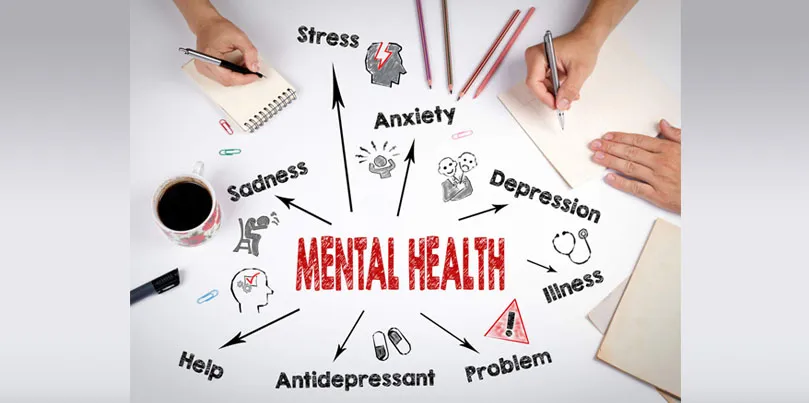Introduction: In today’s fast-paced world, where stress and anxiety have become common companions, the significance of mental health cannot be overstated. Thankfully, as awareness about mental health grows, so does the availability of resources to support emotional well-being. One such valuable resource is the Center for Emotional Health in Winston-Salem. In this blog, we will explore the vital role of this center in empowering mental well-being and improving the lives of individuals in the community.
1. A Holistic Approach to Mental Health: The Center for Emotional Health in Winston-Salem stands out for its holistic approach to mental health. Unlike traditional mental health clinics, it recognizes that emotional well-being is not just about addressing symptoms but understanding the individual as a whole. By taking into account various aspects of a person’s life – such as physical health, relationships, work-life balance, and personal interests – the center can offer comprehensive and personalized care.
2. Expert Team of Mental Health Professionals: At the heart of any reputable mental health center lies its team of professionals. The Center for Emotional Health boasts a diverse group of licensed therapists, psychologists, counselors, and psychiatrists. Each member of this team brings unique expertise, making it possible to cater to a wide range of mental health challenges effectively. Whether someone is struggling with depression, anxiety, trauma, or relationship issues, the center’s team is equipped to help.
3. Client-Centered and Compassionate Care: The center’s commitment to providing client-centered care sets it apart from other mental health facilities. Recognizing that each individual’s journey to emotional well-being is different, the center tailors its approach to meet the specific needs and goals of every client. This compassionate and empathetic care creates a safe space for individuals to open up about their struggles, fostering a positive therapeutic relationship.
4. Evidence-Based Therapeutic Techniques: One of the hallmarks of the Center for Emotional Health is its dedication to evidence-based therapeutic techniques. All treatment approaches and interventions are backed by research and proven to be effective in supporting mental health. Whether it’s cognitive-behavioral therapy (CBT), dialectical behavior therapy (DBT), mindfulness-based stress reduction (MBSR), or other modalities, clients can be confident in the quality of care they receive.
5. Community Involvement and Support: The center’s impact extends beyond its immediate clientele. It actively engages with the Winston-Salem community through workshops, seminars, and awareness campaigns focused on mental health. By promoting mental health literacy and reducing the stigma around seeking help, the center plays a vital role in building a more mentally healthy community.
6. Convenient Location and Flexible Services: Convenience can play a significant role in encouraging individuals to seek help for their emotional well-being. The center’s location in Winston-Salem ensures easy accessibility to residents of the area. Additionally, it offers flexible services, including in-person and online therapy sessions, accommodating various schedules and preferences.
7. Specialized Programs and Workshops: The Center for Emotional Health in Winston-Salem goes beyond traditional therapy by offering specialized programs and workshops tailored to specific mental health needs. These programs might focus on topics such as stress management, coping with grief and loss, building resilience, improving communication skills, and enhancing emotional intelligence. By addressing targeted concerns, these workshops empower individuals with practical tools and strategies to navigate life’s challenges successfully.
8. Focus on Prevention and Early Intervention: The center places a strong emphasis on prevention and early intervention when it comes to mental health. Recognizing that addressing issues early can prevent them from escalating into more severe conditions, the center actively promotes mental health screenings and assessments. This proactive approach ensures that potential problems are identified early, allowing for timely and effective interventions.
9. Collaborative Approach to Care: The Center for Emotional Health believes in the power of collaboration. It often partners with other healthcare providers, social service organizations, and schools to create a network of support for clients. This collaborative approach ensures that clients receive comprehensive care and access to additional resources if needed. By working together, different professionals can share insights and develop integrated treatment plans for complex cases.
10. Support for Families and Loved Ones: Mental health challenges not only affect the individual directly experiencing them but also impact their loved ones. The center understands the importance of supporting families and caregivers in the process of healing and recovery. It offers family therapy sessions and educational resources to help loved ones better understand the challenges faced by their family member and learn effective ways to provide support and encouragement.
11. Research and Innovation: The Center for Emotional Health is committed to staying at the forefront of mental health research and innovation. The center invests in ongoing training and professional development for its staff, ensuring they are equipped with the latest knowledge and therapeutic techniques. Additionally, the center actively participates in research studies and may collaborate with academic institutions to contribute to the advancement of mental health care.
12. Culturally Competent Services: Recognizing the diverse community it serves, the center strives to be culturally competent in its services. It acknowledges and respects the unique backgrounds, beliefs, and values of each individual, ensuring that therapy is sensitive to cultural considerations. This inclusive approach fosters a welcoming environment where clients feel understood and valued.
13. Telehealth Services for Accessibility: To meet the evolving needs of the community, the Center for Emotional Health offers telehealth services. This virtual platform allows individuals to access mental health support from the comfort of their homes or workplaces. Telehealth services not only improve accessibility for those with physical limitations or transportation barriers but also cater to busy schedules, making mental health care more convenient and readily available.
14. Peer Support Groups: In addition to individual therapy, the center facilitates peer support groups where individuals facing similar challenges can come together to share experiences and offer mutual support. These groups create a sense of belonging and reduce feelings of isolation, fostering an atmosphere of understanding and encouragement.
15. Focus on Self-Care and Wellness: The center’s approach to mental health extends beyond symptom management. It places a strong emphasis on promoting self-care and overall wellness. Clients are encouraged to adopt healthy lifestyle habits, such as exercise, mindfulness practices, and balanced nutrition, which complement their therapeutic journey.
16. Outreach and Education Initiatives: The center actively engages in community outreach and education initiatives to spread awareness about mental health. It collaborates with schools, workplaces, and community organizations to deliver informative sessions on stress management, mental health stigma, and the importance of seeking help when needed.
17. Positive Impact on the Community: Through its comprehensive and compassionate approach, the Center for Emotional Health has made a positive impact on the Winston-Salem community. By empowering individuals to lead fulfilling lives and fostering a mentally healthy environment, the center contributes to the overall well-being and productivity of the community as a whole.
18. Continuous Growth and Improvement: As part of its commitment to excellence, the center continuously assesses and improves its services. Client feedback and outcome measures are used to enhance the quality of care and ensure that the center remains responsive to the evolving needs of its clients.
19. Support for Different Age Groups: The Center for Emotional Health recognizes that mental health challenges can affect individuals of all ages. To cater to the unique needs of different age groups, the center offers specialized services for children, adolescents, adults, and seniors. Whether it’s child therapy, teen support groups, or geriatric counseling, the center ensures that individuals at every life stage receive appropriate and effective care.
20. Integration of Technology in Therapy: Incorporating technology into therapy has proven to be highly beneficial. The center utilizes innovative tools and resources to enhance the therapeutic process. This may include virtual reality therapy for specific phobias or anxiety, mental health apps to track progress, and online resources for self-help and skill development.
21. Crisis Intervention Services: Understanding the urgency of certain situations, the center provides crisis intervention services for individuals experiencing acute mental health crises. These services ensure immediate support and help prevent potential emergencies, emphasizing safety and stability during critical moments.
22. Advocacy for Mental Health Awareness: The Center for Emotional Health is not only dedicated to providing direct care but also advocates for mental health awareness and policy change. The center actively engages with policymakers and mental health organizations to promote laws and initiatives that improve access to mental health services and reduce stigma.
23. Tailored Treatment Plans: No two individuals are the same, and the center acknowledges this fact by developing tailored treatment plans for each client. Therapists work collaboratively with clients to set achievable goals and milestones, ensuring that the therapy journey is both effective and empowering.
24. Focus on Resilience and Growth: While addressing immediate mental health concerns is essential, the center also focuses on cultivating resilience and personal growth in its clients. Through therapy, individuals learn to navigate life’s challenges, build coping skills, and develop a sense of self-awareness and empowerment.
25. Continuing Education and Workshops for Professionals: The center is committed to supporting the professional development of mental health practitioners. It offers continuing education opportunities, workshops, and seminars for psychologists, counselors, and therapists to enhance their skills and stay updated on the latest advancements in the field.
26. Confidentiality and Privacy: Respecting the confidentiality and privacy of clients is a cornerstone of the center’s practice. Clients can rest assured that their personal information and therapy sessions remain confidential, creating a safe space for open and honest communication.
Conclusion:
The Center for Emotional Health in Winston-Salem is a beacon of hope for individuals seeking support and guidance on their journey to improved mental well-being. Through its holistic approach, expert team, client-centered care, evidence-based techniques, and community involvement, it continues to make a positive impact on the lives of many. If you or someone you know is struggling with emotional challenges, consider reaching out to the center to embark on a path towards a healthier, happier life. Remember, seeking help is a courageous step towards emotional growth and well-being.




